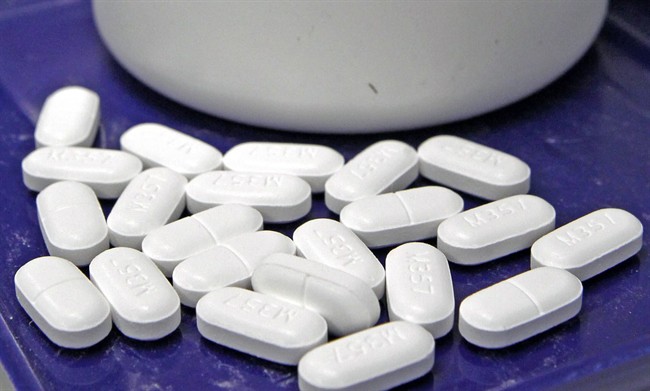The Parliamentary Budget Officer is estimating that a new national pharmacare program would cost the federal government a little over $19 billion per year, a price-tag that could grow to $22.6 billion a year by 2021.

The federal fiscal watchdog, which provides non-partisan financial advice to Parliament, issued a report on Thursday outlining the expected financial consequences of granting universal government coverage on most prescription drugs — something that is already a reality in many countries with universal health care.
“After accounting for pricing and consumption changes, the estimated $645 million the federal government already spends in direct drug spending to certain populations, as well as the estimated $398 million in net revenues from co-payments, the net cost to the federal government would be $19.3 billion,” the report concludes.
WATCH: New push for national pharmacare program

In 2015-16, the PBO estimates, the country recorded a total of $28.5 billion in pharmaceutical expenses. At the moment, costs are shared by governments ($11.9 billion), private insurance plans ($9 billion) and patients ($3.6 billion). Of that, $24.6 billion would be eligible for coverage under a universal pharmacare program.
But according to the report, things like greater purchasing power would also drive down the overall spending on prescription drugs if the country switched to universal coverage. Ottawa, as a single payer, could wield far greater influence when negotiating drug prices with pharmaceutical companies than could a single province or territory.

Get weekly health news
The annual savings recorded as a result of those factors would amount to $4.2 billion (which would be shaved off of the above total of $24.6 billion) if Canada switched to a universal system, the PBO estimates.
READ MORE: Panel calls on Ottawa to provide universal pharmacare plan for Canadians
Thursday’s report was commissioned back in September 2016, when the House of Commons Standing Committee on Health asked the PBO to provide a cost estimate of implementing a national program.
The committee provided the needed framework that the PBO used to draw its conclusions, which were based on Quebec’s prescription drug formulary, eligibility requirements and co-payment levels.
The PBO report did caution that with expanded coverage and fewer out-of-pocket expenses, the number of drug prescriptions being filled across the country could go up by as much as 11 per cent.
What would this mean for me?
The outcomes for individual Canadians could potentially be dramatic.
“Patient’s out-of-pocket expenditures for formulary drugs other than those listed as exceptional are expected to decrease by 69 to 100 per cent depending on eligibility for co-payment exemptions,” the PBO report says.
The impact for patients could be most strongly felt in provinces like British Columbia and Manitoba, the report states, where about a quarter of prescription transactions by value are primarily paid for by individuals.
COMMENTARY: Time for a national prescription drug plan
Younger Canadians could also see a marked difference. The proportion of total drug spending that’s primarily out-of-pocket is up to twice as high among Canadians under age 65 (18 per cent to 23 per cent) compared to people 65 and over (11 per cent to 13 per cent).
“This is consistent with the majority of public plans offering universal coverage to seniors, generally with low co-payments, premiums and/or deductibles,” the report explains.
That said, seniors are currently still paying more out-of-pocket overall on their prescriptions ($646 per year per household in 2015). Those aged 65 and over spend, on average, almost four times more than those under 30 because health concerns and prescriptions tend to increase as we age.
“Too many Canadians are forced to choose between refilling their fridge and refilling their prescriptions,” said NDP health critic Don Davies in a statement on Thursday.
“The NDP has long advocated for a national pharmacare program and this report proves we can’t afford to wait any longer.”
The PBO report is part of a wider study of pharmacare being conducted within the House of Commons health committee, launched last year by a motion from Davies.
“We look forward to reviewing the Parliamentary Budget Officer’s analysis,” said Bill Blair, the parliamentary secretary to the minister of justice and to the minister of health, during Question Period on Thursday.
Blair added that Ottawa needs to make sure the existing system is more “efficient and responsive” before discussing universal drug coverage.
— With files from the Canadian Press.






Comments